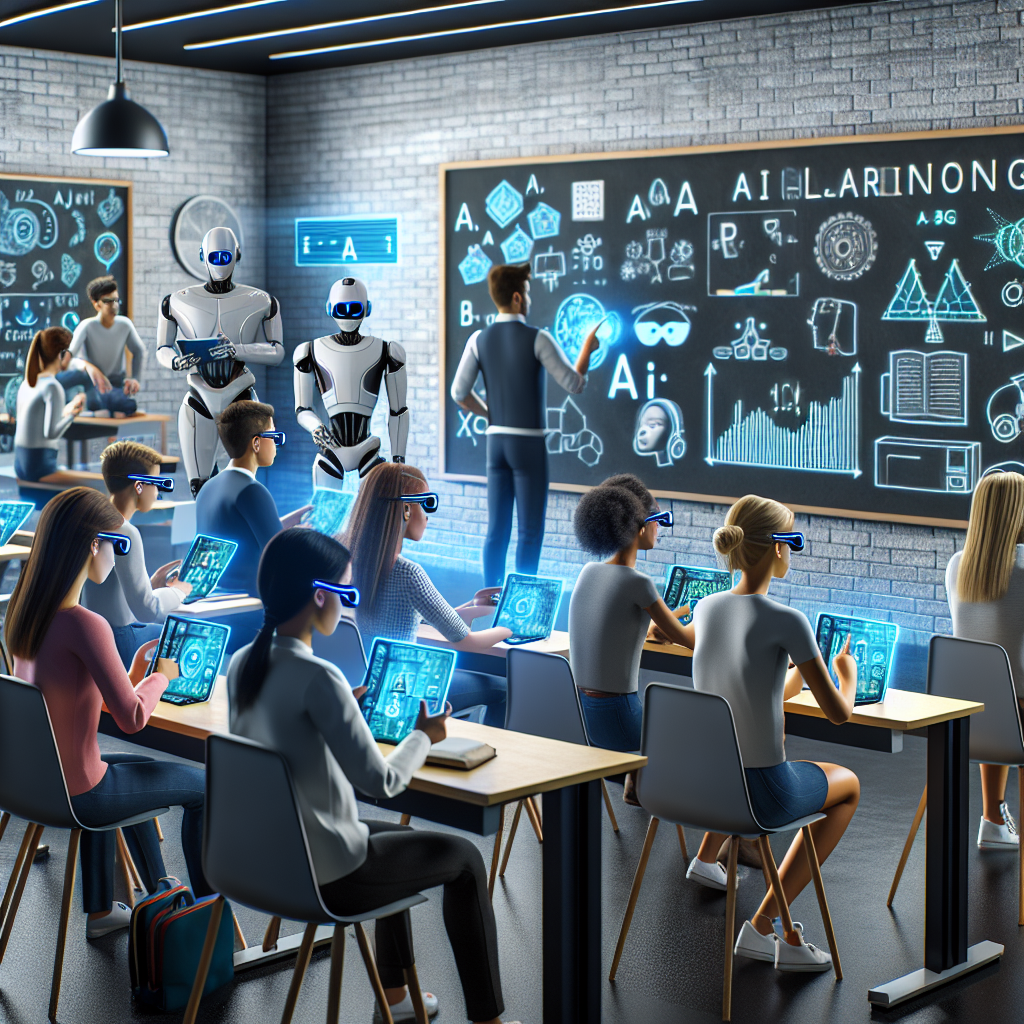Artificial intelligence (AI) has rapidly transformed various aspects of our lives, from healthcare to transportation to entertainment. It is no surprise that AI has also made its way into the education sector, revolutionizing how teachers manage their classrooms and support student behavior.
The Impact of AI on Classroom Management
One of the key ways AI has impacted classroom management is through automated grading and assessment tools. These tools can quickly and accurately grade assignments, quizzes, and exams, saving teachers valuable time and allowing them to focus on providing feedback and support to their students. By automating routine tasks like grading, teachers can devote more time to individualized instruction and supporting students who may be struggling academically.
AI-powered learning platforms can also provide personalized learning experiences for students, allowing them to work at their own pace and receive targeted support in areas where they may be struggling. These platforms can analyze student performance data to identify areas of weakness and recommend specific resources or activities to help students improve. This personalized approach to learning can help students stay engaged and motivated, leading to better academic outcomes.
Another way AI is impacting classroom management is through behavior monitoring and analysis. AI-powered tools can analyze student behavior in real-time, flagging potential issues such as disruptions, bullying, or other behavioral concerns. By identifying these issues early, teachers can intervene quickly to address them and prevent them from escalating. This proactive approach to behavior management can create a more positive and inclusive learning environment for all students.
Behavior Support with AI
In addition to behavior monitoring, AI can also support teachers in implementing behavior interventions and strategies. AI-powered tools can provide teachers with evidence-based strategies and interventions to address specific behavior challenges in their classrooms. These tools can recommend interventions based on the individual needs of students, helping teachers make informed decisions about how to support their students effectively.
AI can also assist teachers in tracking and monitoring the effectiveness of behavior interventions over time. By analyzing data on student behavior and intervention outcomes, AI can help teachers identify which strategies are most effective and make adjustments as needed. This data-driven approach to behavior support can help teachers tailor their interventions to meet the unique needs of each student, leading to better outcomes for all.
FAQs
Q: How does AI impact student-teacher relationships in the classroom?
A: AI can enhance student-teacher relationships by providing teachers with more time and resources to support their students. By automating routine tasks like grading and assessment, AI allows teachers to focus on building relationships with their students, providing personalized support, and fostering a positive learning environment.
Q: Can AI be used to prevent bullying and other behavioral issues in the classroom?
A: Yes, AI-powered behavior monitoring tools can help teachers identify and address bullying and other behavioral issues in the classroom. By analyzing student behavior in real-time, these tools can flag potential issues and alert teachers to intervene quickly. This proactive approach can help prevent bullying and other behavioral issues from escalating.
Q: How can AI support students with special needs in the classroom?
A: AI-powered learning platforms can provide personalized learning experiences for students with special needs, allowing them to work at their own pace and receive targeted support. These platforms can analyze student performance data to identify areas of weakness and recommend specific resources or activities to help students improve. This personalized approach to learning can help students with special needs stay engaged and motivated.
In conclusion, AI has the potential to revolutionize classroom management and behavior support in education. By automating routine tasks, providing personalized learning experiences, and supporting behavior monitoring and interventions, AI can help create a more inclusive and supportive learning environment for all students. As AI continues to advance, its impact on education is likely to grow, leading to improved outcomes for both teachers and students.

